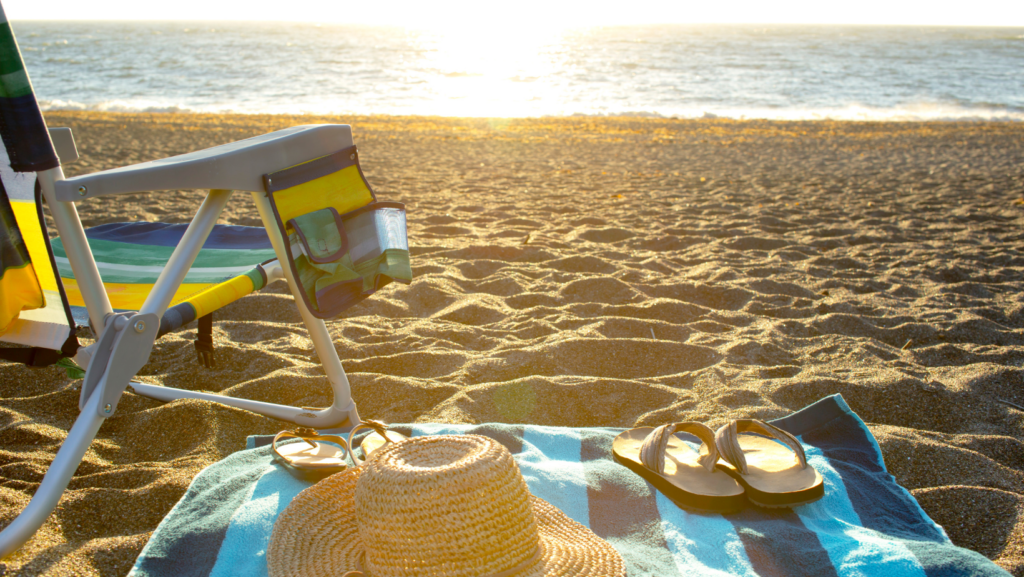You’ve probably heard the saying about beach body images. The one that goes like this:
If you want a beach body, go to the beach. With your body. Now you have a beach body!
Sigh. If only we were all socialized to feel that eeezy breezy.
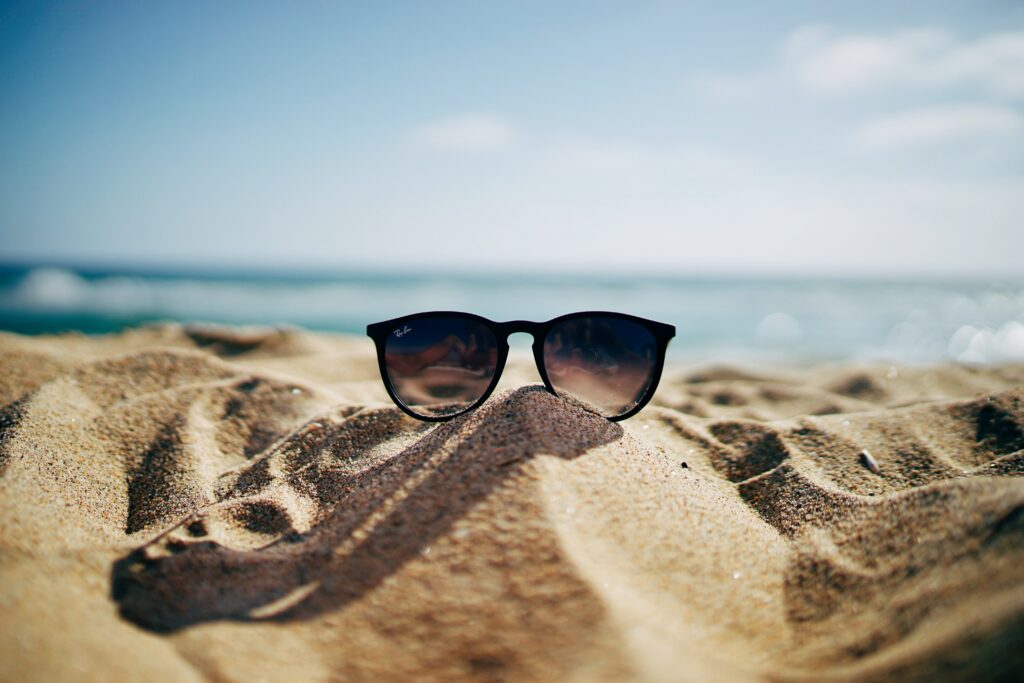
But we’re not. We feel self conscious. If we do head to the beach, we consider wearing an oversized coverup. Or we prefer to go to the beach at dusk or when it’s cloudy. Fewer people are there.
It’s as if a ticket of body approval is required in order to show up at the beach. Cultural standards are in charge of who gets a ticket, and who’s denied admission. And cultural standards are based on ideals that at least 95% of us can not biologically sustain.
True, we may not technically be denied admission. But enjoying the beach in a body size that’s deemed “too big” by cultural standards is shame laden for many of us.
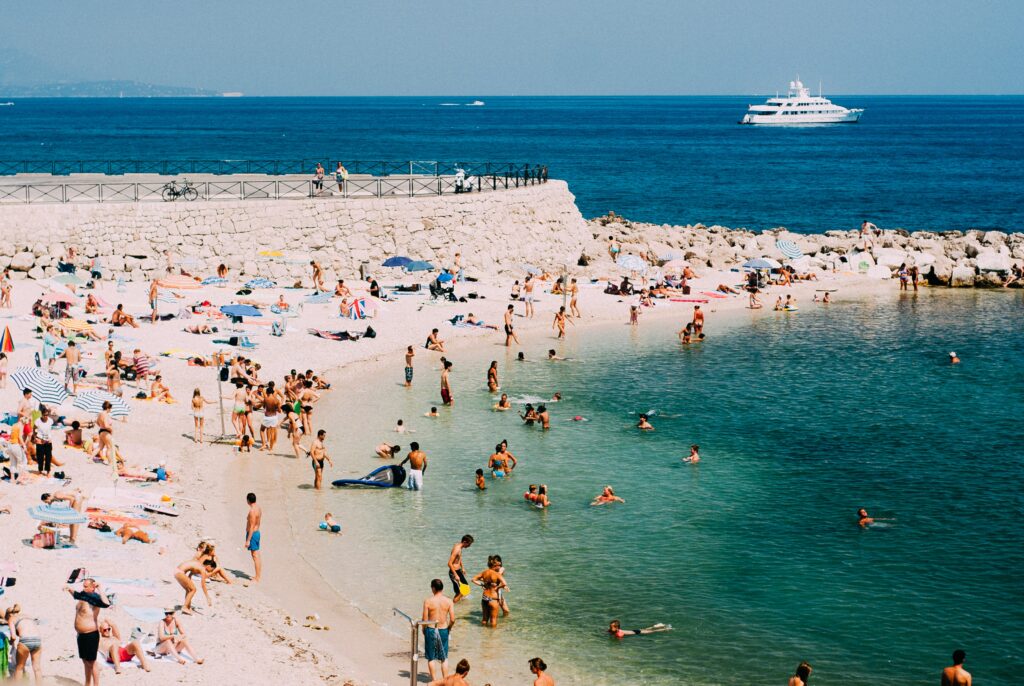
Attractiveness ideals are meant to be unattainable for the vast majority of people. That’s why they’re called ideals. They’re designed so that only up to 5% of the population can attain and sustain looking that way.
Beach body images do damage to all of us. Male, female, nonbinary, adult, adolescent, child – we’re all affected. Even if you don’t live near a beach, want to go to a beach, or ever go to the beach for other reasons. It isn’t really about the beach.
If it’s not about appearance (or the beach), what damage do beach body images promote?
Probably too many to list. Here are just three forms of damage beach body images promote. I call them the “3 C’s”:
- comparison
- competition
- contempt
Comparison

Dubbed “the thief of joy” by Theodore Roosevelt, is so common that it often occurs automatically. Whether you compare yourself ‘favorably’ or ‘unfavorably’ to whomever you’re comparing yourself to, self esteem doesn’t improve. Nor does joy. In fact, both typically deteriorate. Comparisons by definition emphasize the external. Social media use intensifies comparisons and the associated loss of joy.
The people and culture surrounding you (both live and online) affect body image, especially because of built in, almost reflexive comparing that goes on. With comparisons come competition.
Competition

A competitive environment makes a positive or even neutral body image hard to have and to maintain. Changing the external competition emphasis to an integration of the many facets of your relationship with your body is the secret sauce.
Contempt
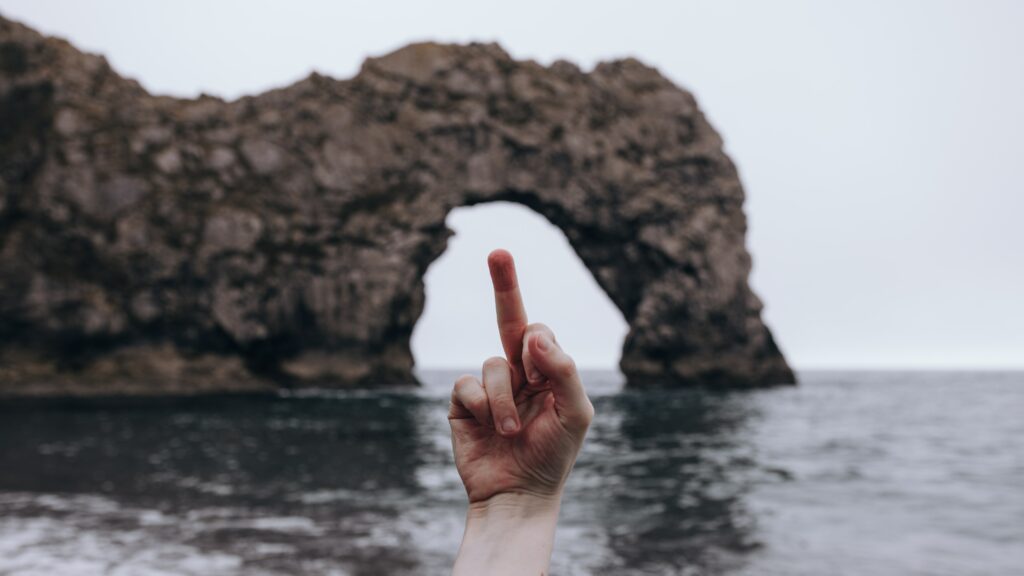
Contempt comes into play as pent up frustration with your own body image intensifies. Which it will in the pursuit of a beach body image. Comparing and competing are a major source of contempt – towards others and yourself.
The 3 C’s tend to promote “s.a.d.d.d.ness”:

- shame
- antagonism
- disgust
- despair
- depression
Shame is associated with self-criticism and low self esteem.
Antagonism is hostility. Hostility keeps people from feeling or being connected with others. It also makes feeling safe elusive.
Disgust, despair, and depression are unpleasant feeling states that can become pervasive. Especially in an ongoing effort to alter your body to a certain size and shape to meet cultural ideals. How easy to forget that you don’t need to be a card carrying member of Diet Culture. Or a beach body image clone.
Attractiveness standards are not new. They change at least once a decade to keep people chasing the ideal du jour.
Comparing and competing can become so automatic we aren’t even aware of doing it.
Intertwined with the resulting ‘s.a.d.d.d.ness’, we’re in constant battle – with others AND ourselves. Comparing and competing with one another about having a beach body is damaging.
Psychological damage
Diet culture loves body hate. And thrives on you being at war with your own body. Especially when you don’t realize you’re being influenced (brain washed even) by cultural forces.
(Hello, comparison, competition and contempt.)
Staying stuck in the trap of body image ideals is so easy it can feel like a given. (Sort of like fish not knowing they are wet.) As if a ‘beach body’ is the basis for worth and value as a human being. (Maybe Stuart Smalley’s suggestions to feel better about yourself have some merit after all?)
The damaging message is that if you do “x”, you’ll look better and be happier and “healthier”. You’ll have a beach body image.
Ha! There ought to be a disclaimer that says “jk”, just kidding.
Notions of health and well being have certainly been co-opted by Diet Culture. “Healthy lifestyle” is more often than not code for “diet”.
Diet Culture spreads messages that thinness equals health, happiness, attractiveness, and worthiness.
Billions of dollars every year are invested in advertising designed to make us hate the way we look. All the while we may not even realize the damage to our relationship with our bodies and selves.
Physical damage
Dieting (in combination with other factors) is often how an eating disorder begins. Dieting as in “just” pursuing an innocent desire to “be healthier”, “lose a couple of pounds”, and/or to “feel better”.
In fact, dieting is anything but benign. It can turn on biological mechanisms in the brain that activate an eating disorder.
Shifting your mindset from looking good as socio-culturally defined to feeling good requires disentangling your body from Diet Culture rhetoric. And to see your body as an instrument rather than an ornament.
What can each of us do in our everyday lives to change unrealistic beauty standards and promote body acceptance? It’s easy to say, “society has to change”. But what does that mean? And who is society?
Three suggestions (consistent with the alliteration theme!) to consider:
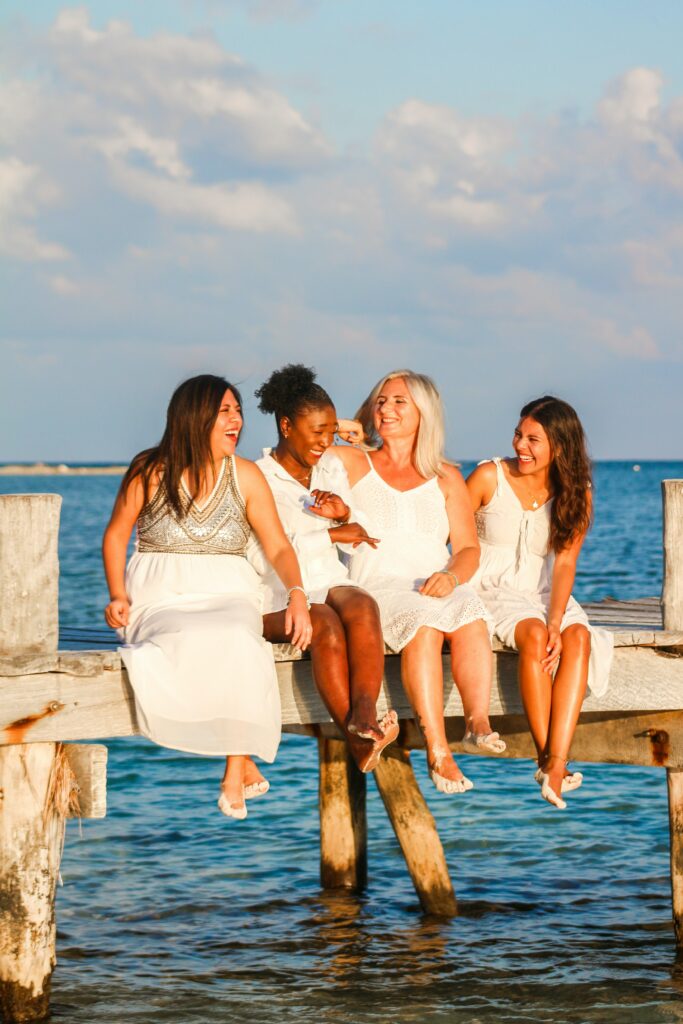
Awareness
Diet Culture is insidious and hard to identify because of how well indoctrinated we have become, starting at an early age. To change something, awareness helps. Here are some good sources to educate yourself on Diet Culture.
Attitude
No one is obligated to be a part of the Beach Body image scene – or to reject it. We live in a free country! Consider your values, and decide upon a plan of action that is aligned with those values.
Affirmation
Find people who are on a similar path. Go to the beach with them (literally and metaphorically!), regardless of if you or they are in a ‘beach body’.
It reminds me of a coffee cup message I recently saw:
See you soon – maybe at the beach, maybe not. Either way, it’s all good.
Dr Elayne Daniels is a psychologist, international coach, and consultant specializing in eating disorder treatment, body image, and working with Highly Sensitive People. Contact her here for more information or with questions.
